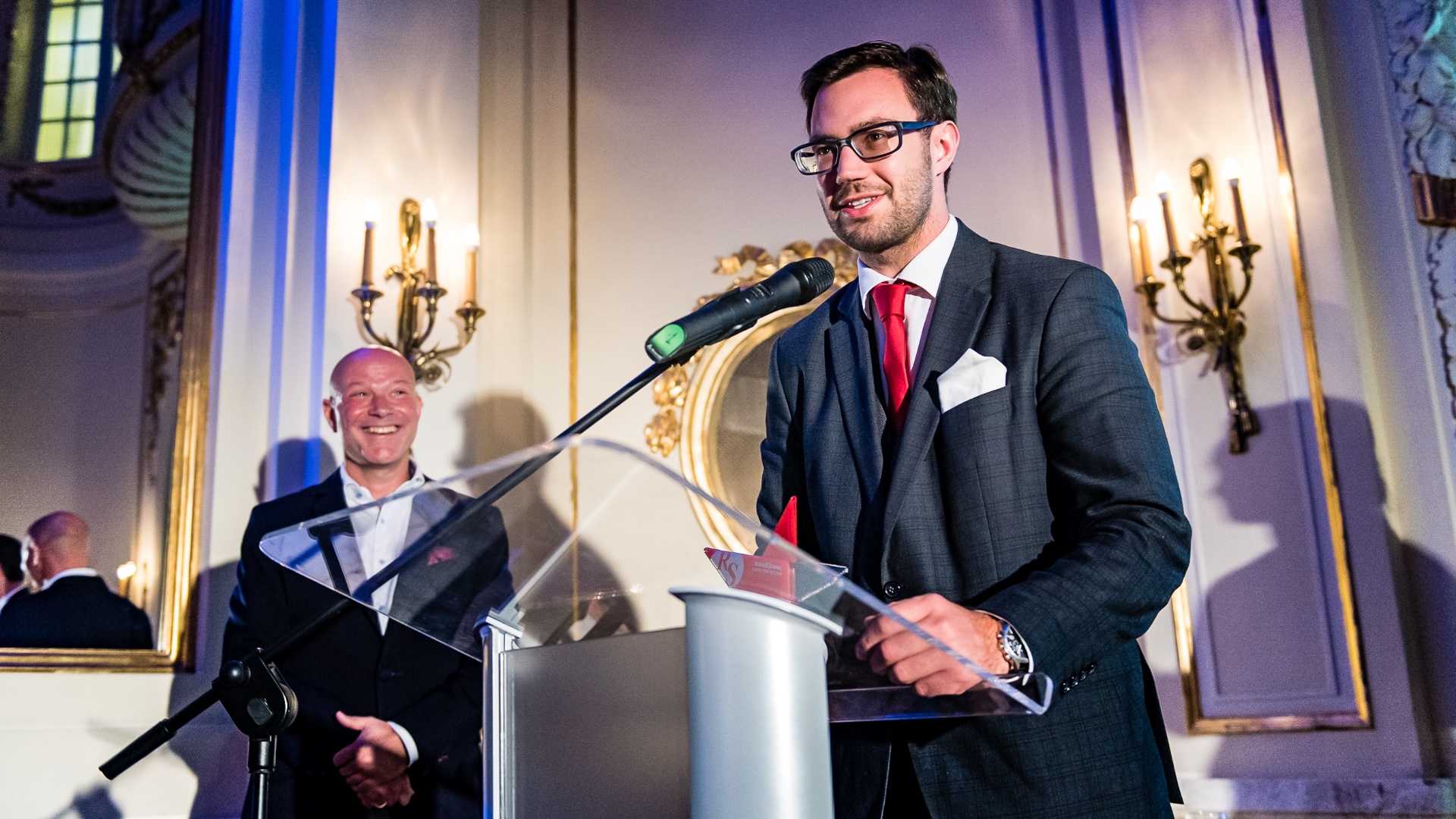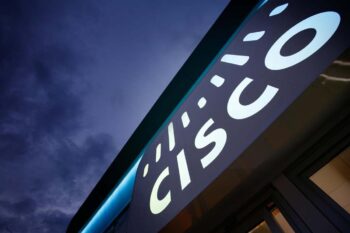The IT market is dynamically growing and changing, offering more opportunities, increasingly tailored to the specific needs of business. For this reason, among others, many companies are increasingly choosing to make changes to the solutions they use, better suited to the current needs of the business. These changes can sometimes be very costly, and one way to reduce these costs is to recoup some of the funds from software no longer in use. All that is needed is to sell it. One company that buys back and sells used software is Forscope. We talk to Jakub Šulák, founder and CEO of Forscope, about the used software market, the evolution of the IT market, the future of used software and Forscope‘s role as an intermediary in this dynamically changing environment .
Bartosz Martyka, BrandsIT: What are the current trends in the software market that affect Forscope’s business, and what challenges do these trends pose for the company?
Jakub Šulák, Forscope: Faced with regular price increases for subscription packages, as well as rising overall business costs, more and more companies and public institutions are looking for ways to optimise. One option is to reach for used perpetual licences, or to put it simply, second-hand software. The scale of savings can be truly significant, as we are talking about 70 and sometimes even 80 per cent of the amount in savings compared to buying new software. The growing popularity of second-hand software is best demonstrated by the fact that, according to our observations, this market is currently growing in Central and Eastern Europe at a rate of more than 20 per cent per year. However, it is possible to profit not only by purchasing, but also by reselling used perpetual licences, thus recovering part of the originally invested funds. As a used software broker, we also reach out to such organisations, each time meticulously carrying out the process of verifying the legality and origin of the products and preparing all the necessary documentation.
“The scale of the savings can be really significant, as we are talking about 70 and sometimes even 80 per cent of the amount in savings compared to buying the software new.”
Bartosz Martyka, BrandsIT: Could you describe your strategy for selling used software and how Forscope adapts to the needs of both sellers and buyers?
Jakub Šulák, Forscope: We sell both directly and through software integrators, and our customers include both private sector companies and public institutions. We operate comprehensively, always responding to the specific needs of a particular organisation. We also increasingly participate in tenders conducted by government and local government institutions. We have had numerous successes in this area. Because, it is worth emphasising, also public institutions interested in purchasing software can legally use solutions based on the aftermarket. Among our customers, we can mention the Polish Ministry of Culture and National Heritage, the General Prosecutor’s Office of the Slovak Republic and even the Bulgarian Military Intelligence Service. The perpetual licences we offer come either directly from companies that have a larger amount of redundant software and would like to sell or exchange their stock, or from our proven suppliers from several European countries.
Bartosz Martyka, BrandsIT: How does Forscope deal with copyright and licensing issues when reselling software? Is all software suitable for resale?
Jakub Šulák, Forscope: According to the Directive of the European Parliament of 23 April 2009, anyone who has purchased software in the form of a perpetual licence in the European Economic Area may transfer the ownership of this copy to another party. No approval is needed from the owner of the copyright in the software, because his distribution rights have been exhausted at the first sale. This legal position is confirmed by the CJEU ruling of 3 July 2012 and subsequent judgments issued in this matter. However, the aforementioned legal bases and judgments do not apply to software in the form of a subscription, as in this situation we are not dealing with ownership, but only with time-limited use of the service.
“No approval from the software copyright owner is needed, as its distribution rights were exhausted at the first sale.”
In order to successfully transfer ownership of a perpetual software licence, several basic conditions must be met. It is necessary to properly document the origin of the software and demonstrate that the licence was granted in perpetuity in exchange for a one-off payment. Furthermore, the software to be resold must have been fully paid for by the original owner, and the original and any subsequent owner must have uninstalled and deactivated the software to be sold at their premises.
Acquisition of ownership rights to a copy of the software and its compliance are confirmed through the documentation you receive at the time of purchase. These documents contain detailed information such as the origin of the software, the licence agreement number or a declaration that the previous owner has uninstalled the software. As a result, proving that the software used was acquired legally is very simple.
Bartosz Martyka, BrandsIT: What types of organisations choose to implement second-hand software?
Jakub Šulák, Forscope: These are primarily companies of all sizes – from small and medium-sized to the largest corporations. Obviously, the larger the scale of operations and demand for software, the greater the scale of savings. Public institutions, which I have already mentioned, are also increasingly opting for the implementation of used licences, currently accounting for almost 10 per cent of our customers.
Bartosz Martyka, BrandsIT: Can micro-enterprises and individual customers also buy software thanks to (from) Forscope?
Jakub Šulák, Forscope: We gave up retail sales a few years ago. We are a B2B company, so as a rule we do not have an offer for individual customers and orders directly for B2C customers are not processed by us. However, sometimes small and micro companies with fewer than 10 employees, as well as freelancers, use our services.
Within our business, however, we focus primarily on medium-sized and large companies. That is why we offer the possibility of creating an account for companies, retailers and public institutions in our online shop. We are convinced that, thanks to the experience of our sales team, we can provide them with first-class support and customer service.
Bartosz Martyka, BrandsIT: How has the role of an intermediary such as Forscope evolved in recent years and what are the main benefits you bring to both sellers and buyers?
Jakub Šulák, Forscope: As a company, we are constantly growing. We currently operate in 10 countries in Central and Eastern Europe and our team is constantly growing. We are also steadily increasing our turnover every year. But none of this would be possible without a perfectly working team. I think this is also the basis for the quality of the solutions we provide. Forscope is distinguished by an open and informal atmosphere that we never let take away from us. It is this atmosphere and teamwork that gives us a strong foundation to become an industry leader. In addition to competitive product pricing, our advantage is our attention to meeting legal requirements for product legality, our knowledge and education in software licensing, and our ability to provide customised solutions to our clients.
Bartosz Martyka, BrandsIT: How does Forscope ensure that resold software is secure and compliant with current standards and regulations?
Jakub Šulák, Forscope: The basic guarantee of security is the fulfilment of all formal requirements I mentioned earlier. It should also be borne in mind that used software receives all updates or security patches issued by the manufacturer, in accordance with the life cycle policy for the specific product, and the customer can use the standard technical support offered by the manufacturer. The updates available for used software purchased from us are therefore exactly the same as for new software sold directly by the manufacturer.
Bartosz Martyka, BrandsIT: Are there any new technologies or innovations that are particularly affecting the used software market?
Jakub Šulák, Forscope: We operate in the IT industry, where novelties and innovations are constantly emerging. Therefore, our business is influenced by every new product on the market, especially in the field of software. Personally, I am very curious in which direction the popularity of cloud solutions will evolve, as we see companies abandoning them in favour of going back to on-premise solutions. On the other hand, there are organisations that have successfully migrated. In both cases, there is room to talk about aftermarket software.
Bartosz Martyka, BrandsIT: What are your predictions for the future development of the software market and what strategies does Forscope plan to implement to keep up with these changes?
Jakub Šulák, Forscope: The IT market is constantly evolving. This evolution is so fast that all predictions will become obsolete tomorrow. We want to be prepared for the widest possible spectrum of these changes. That is why, for example, we recently added the Czech cloud platform IceWarp to our portfolio, which offers solutions similar to Microsoft 365 or Google Workspace at very competitive prices.
Bartosz Martyka, BrandsIT: Does Forscope undertake any sustainability initiatives, particularly in the context of promoting software reuse?
Jakub Šulák, Forscope: Sustainability and second-hand software are concepts that are closely linked. Aftermarket software, by its very nature, certainly supports any sustainability initiative. Our aim is to enable companies and public institutions to use funds that were originally intended to be spent on software where they are more needed. Whether that means, for example, new equipment for a hospital that can save lives or books for children in the city library. In my opinion, this is the best way to promote sustainability in our industry.
“Sustainability and second-hand software are concepts that are closely linked.”
Bartosz Martyka, BrandsIT: Finally, what advice could you offer to IT managers who are considering buying or selling used software?
Jakub Šulák, Forscope: Second-hand software licences are a great way to optimise costs and carry out various tasks and projects in any industry. But when choosing a supplier, it is very important to gather as much information as possible and look carefully at the offers available on the market.
“Used software licences are a great way to optimise costs and complete various tasks and projects in any industry.”
This is because there are many sellers on it who offer even the latest versions of the software at very low prices. The problem is that, for the most part, they only sell activation keys, without any accompanying documentation – it is like buying a key for a house, but not the house itself. Purchasing the software in this form – say for €10 – exposes the company to the risk of high penalties (for example during an audit), as the activation key, the installation file and the invoice issued by the vendor do not guarantee the legality or the actual acquisition of the rights to use the product.












